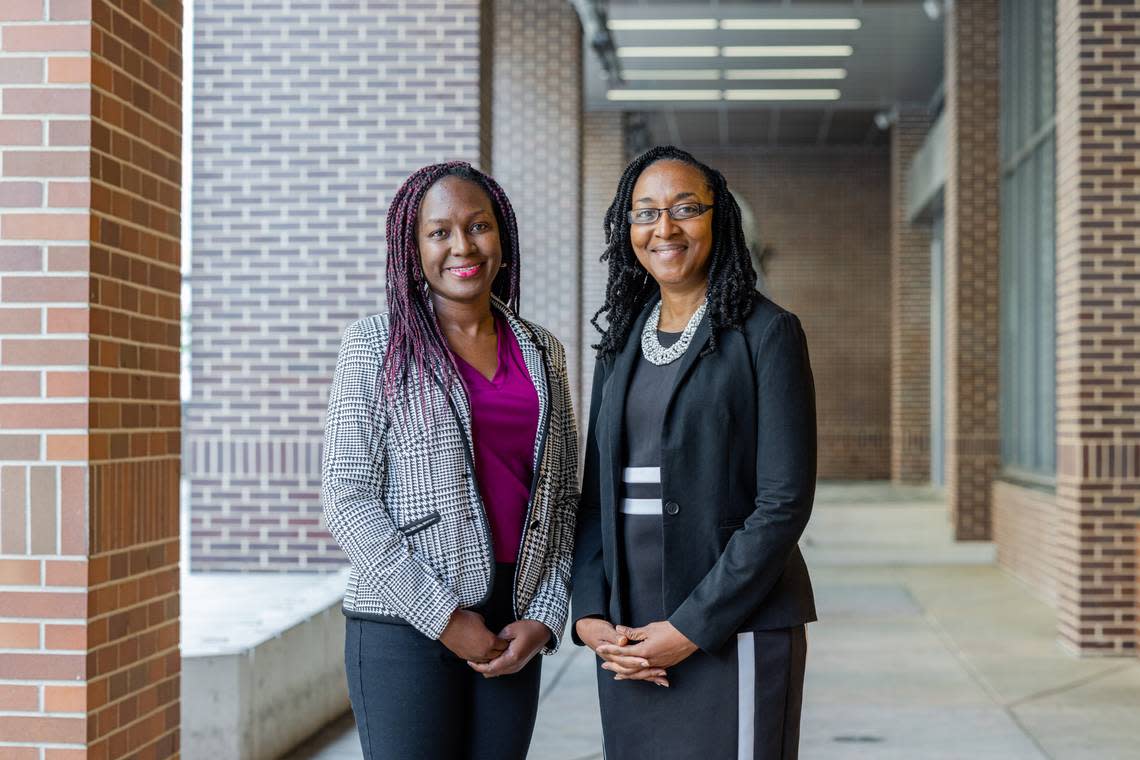Bridging breast and prostate cancer disparities among Blacks is focus of new Miami study
With Black men and women at a higher risk of developing and dying from aggressive breast or prostate cancer, a new Miami study is seeking to better understand how to detect and treat the diseases across Black communities in the United States, the Caribbean and Africa.
Researchers at Sylvester Comprehensive Cancer Center will work to identify cancer-causing mutations among U.S. Blacks diagnosed with breast or prostate cancer, including in the Miami area, as well as Blacks in the Bahamas, Barbados, Haiti, Jamaica and Trinidad and Tobago in the Caribbean. They also will study cases in Benin, Burkina Faso, Kenya and Namibia in Africa.
They’ll test the genes to identify which ones may increase a person’s risk for cancer and see if the genes have certain proteins that stimulate cancer growth, vital information doctors need to determine treatment.
And it’s not just DNA they’re examining.
Lifestyle factors
The researchers are examining socioeconomic and lifestyle factors, such as a person’s diet, to see how they may affect a person’s cancer risk and outcome, according to Sophia George, Ph.D., and Camille Ragin, Ph.D., two of the study’s principal investigators. George is a Sylvester researcher; Ragin works with Fox Chase Cancer Center in Philadelphia, which is collaborating with Sylvester.
All of this research will give insight into “what triggers the disease ... and also what we do once we diagnose the disease, to give us some insight about prevention, and about treatment eventually,” said George.
George is the associate director of Diversity, Equity, and Inclusion at Sylvester, part of the University of Miami Health System, and is co-leader of the Philadelphia-based African Caribbean Cancer Consortium (AC3) Women’s Cancer Working Group.
Ragin is associate director of Diversity, Equity, and Inclusion at Fox Chase and is co-leader and founder of the African Caribbean Cancer Consortium.

Sylvester, Fox Chase and the African Caribbean Cancer Consortium are collaborating with Pfizer’s Institute of Translational Equitable Medicine to get a better understanding of cancers that are disproportionately impacting underserved populations.
High mortality rates among Blacks
In the United States, breast cancer is the most common cancer in women, excluding skin cancers. Since 2019, it has been the leading cause of cancer death for Black women, outpacing lung cancer, which has declined in recent years due to less smoking, earlier diagnosis and improved treatment, according to the American Cancer Society. Prostate cancer is the second-leading cause of cancer death for Black men, behind lung cancer.
Breast and prostate cancer are also leading causes of cancer death in the Caribbean and Africa, with prostate cancer’s mortality rate in the Caribbean among the highest in the world, according to Ragin.
While most breast cancer is found in women, about 1 out of 100 breast cancers diagnosed in the United States is found in a man, according to the Centers for Disease Control and Prevention. (By comparison, 1 in 8 women will get breast cancer during her lifetime, according to the CDC.
What this study could mean for patients
Previous research has found that Black women and men are more likely to be diagnosed with breast and prostate cancer, respectively, at a younger age than white women and men. They also tend to have a more advanced cancer by the time it’s detected.
And while Black cancer death rates in the United States have decreased, Black men and women still have the “highest death rates and shortest survival rates of any racial/ethnic group in the U.S. for most cancers,” according to the American Cancer Society.
The Society says “reasons for these disparities are complex but largely stem from less access to high-quality care and optimal treatment as repercussion of long-standing institutional racism.” Family genetics also play a role.
For George and Ragin, the goal is to use the data gathered from their 2,400-person study to create a genetic registry that encompasses the diversity of the world’s Black population. This information will help doctors get a better understanding of how to detect, prevent and treat cancer in Black patients, the researchers said.
“What we call the African American population in the U.S. is really not a monolith. It’s a combination of persons who are U.S. born, persons who are immigrants from the Caribbean or from Africa, and so this study will allow us to identify unique issues within the specific subgroups that can be applied in the U.S. where we have all of these subgroups represented,” said Ragin.
In the U.S., the study will include cancer patients from Sylvester, Fox Chase, the University of Alabama and Augusta University in Georgia in collaboration with Morgan State University, a public historically Black university, in Baltimore. It will also include patients from nine international AC3 research sites in the Bahamas, Barbados, Benin, Burkina Faso, Haiti, Jamaica, Kenya, Namibia and Trinidad and Tobago.
“We really believe that this study will allow us to discover new opportunities for treating and addressing prostate and breast cancer in Black populations around the world ... which ultimately, we know will hopefully address the high mortality rate that we see,” Ragin said.
To learn more about the study
Those interested in learning more about the study can contact Sophia George at sophia.george@med.miami.edu and Camille Ragin at Camille.Ragin@fccc.edu.
